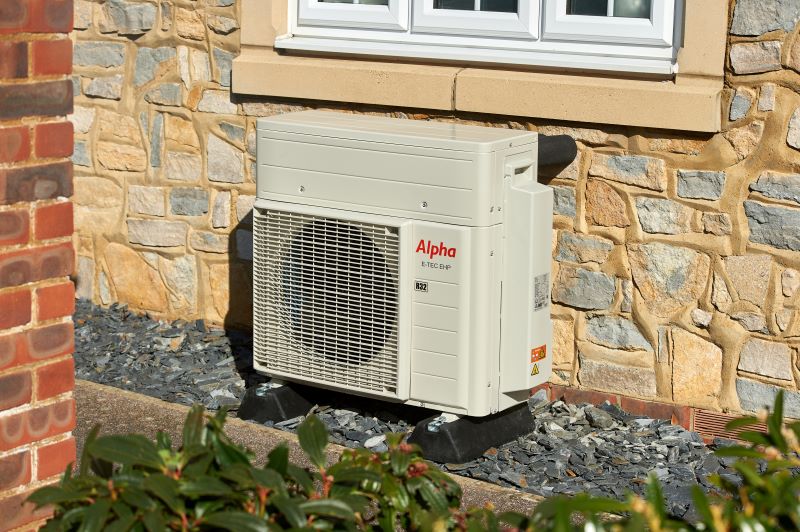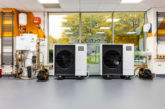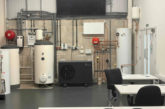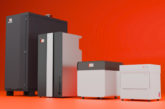
Darran Smith, Technical Manager for heating manufacturer Alpha, examines some of the commonly reported issues affecting heat pump adoption and reveals how modern air source heat pumps meet each of the challenges.
Initial Cost
One of the most-discussed obstacles to heat pump adoption is the initial installation cost. The upfront cost of air source heat pumps (ASHPs) can be higher than that of traditional systems, leading to initial resistance from consumers. However, professionals should consider presenting this to their customers as a long-term investment. Heat pumps offer energy savings which can offset the initial expense over time. With efficiency ratings of heat pumps reaching up to 400%, they can certainly be more cost-effective in the long run.
Climate Suitability
The traditional argument against heat pump adoption has been their perceived limitation in colder climates. While early models suffered from this drawback, modern designs have made strides and dramatically improved performance in this area. Systems equipped with variable-speed compressors and advanced refrigerants are increasingly capable of providing reliable heating even when temperatures drop below freezing.
Alpha’s range of heat pumps, for example, runs with pre-loaded R32 refrigerant and the heat pumps are hermetically sealed. This enables the system to operate efficiently at external sub-zero temperatures reaching as low as -20°C.
Maintenance
Maintenance complexity is often cited as a downside for ASHP adoption. However, this need not be the case. Many modern units feature self-diagnostic capabilities, making it easier for technicians to pinpoint issues. As with any appliance, a series of checks and inspections must be performed at regular intervals by a professional to guarantee ideal ongoing operation of the product.
Annual maintenance is mostly straightforward and should include valve and pressure checks, filter cleaning, an electrical switchgear inspection and recording of the glycol concentration and pH value in the water circuit. With proper care, ASHPs can have a lifespan comparable to traditional systems.
Government Incentives
The UK government has been proactive in championing renewable heating technologies as part of its broader green initiative to achieve net-zero carbon emissions by 2050. As part of this, the government’s Heat and Buildings Strategy (2021) outlined a roadmap for phasing out new natural gas boilers. Within this strategy was the genesis of the Boiler Upgrade Scheme, having acknowledged heat pumps as a successful solution in other countries.
Offering up to a £7,500 subsidy towards the cost of installing an ASHP, the homeowner must fund the remaining balance of typically a further £7,500, depending on the model specified. Three years on, this incentive is still struggling to gain traction as the balance is regrettably out of reach for those households with less disposable income – and this is despite the grants having been increased by £2,500 in October 2023.
While our view as a business is that the scheme should be significantly overhauled in favour of less wealthy households, we do recognise that having renewable incentives available has been a step in the right direction from government.
Noise Levels
Noise generated by older ASHP models has been a point of contention. However, today’s designs have significantly reduced operational noise through better insulation, quieter fans and more advanced compressors. While they may not be as ‘silent-running’ as some other heating options, the noise level is often low enough to meet residential requirements.
To ensure any impact on neighbouring homes is limited, a noise calculation must be carried out before the heat pump is installed for a heat pump to comply with permitted development rules. Completed by the installer, the calculation looks at the sound power level of the pump, any reflective surfaces (such as the wall or floor), its position distance from any neighbours’ closest habitable rooms, as well as if there are any barriers (e.g. fencing) standing between the unit and the neighbouring property or properties.
Technical Complexity
The introduction of sophisticated technologies in ASHPs does pose a learning curve for installers and service technicians. This is less a barrier and more an opportunity for professionals to upskill. Many manufacturers now offer specialised training sessions to help technicians get acquainted with the nuances of their systems. Understanding these complexities can become a strong selling point, making you a go-to expert in a growing field.
With the launch of the Alpha E-Tec Hybrid, our most recent Hybrid Heat Pump Course offers free training in packaged heat pump solutions (covering considerations when fitting a heat pump, system design, positioning and installation), recognising that many installers will be needing support with the transition to renewable heating systems.
Conclusion
Air source heat pumps have come a long way in addressing the challenges that have long stood in the way of their widespread adoption. Their initial cost is increasingly justified by higher efficiency and lower operating expenses; and advancements in technology have made them suitable for a broader range of climates. Coupled with easier maintenance regimes, government incentives, reduced noise levels and opportunities for professional development, ASHPs are becoming a hard-to-ignore option in the heating and cooling market.













